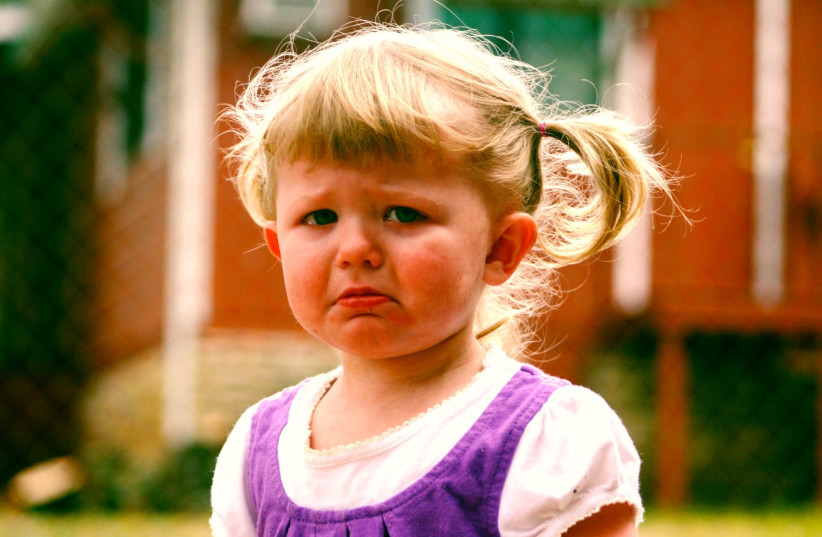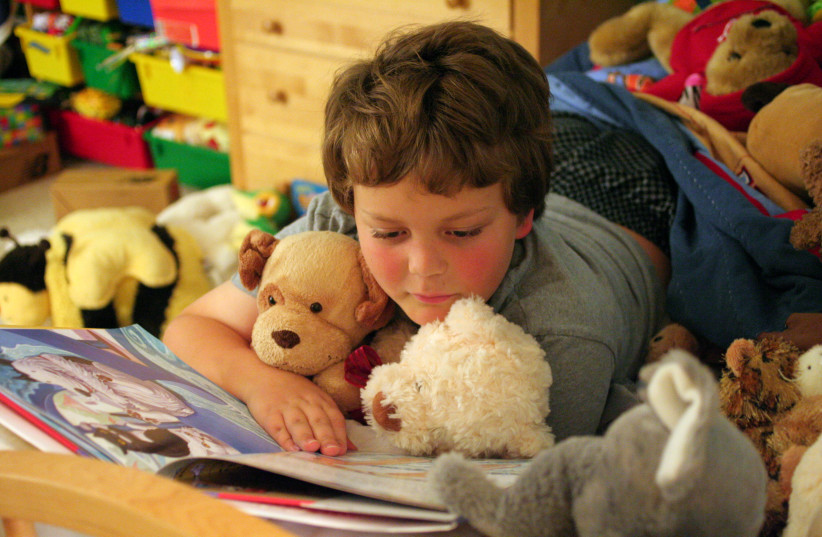Love, compassion, and attention are essential elements for raising independent, stable, and balanced children. When we grow up in an environment without these components we might face challenges that will greatly affect our conduct on all levels.
As we develop and mature, we can look inward and understand why we behave in a certain way and act to improve and increase control over our decisions.
Kaytee Gillis, a licensed social worker, published an article on this subject in Psychology Today in which she identified signs that may indicate childhood neglect, and also the actions we can take to free ourselves from the grip of childhood experiences and repair the damage created by the environment in which we were raised.
1. You feel transparent
Do you feel like the people around you don't care about what's going on with you? Does this cause you anger or frustration that is hard for you to contain? Do you feel that you don't get enough space in conversations, social gatherings or events?

All of these are challenges considered very common among those who grew up in an environment where they didn't feel like they were significant in their family. Gillis explained that the feeling that people "don't care" often stems from the fact that certain needs weren't met in childhood. This creates a feeling that one is invisible and that nothing one does matters.
Solution: As soon as we recognize the feelings of hurt and anger, it can be really unpleasant, but after we overcome the initial pain we should remind ourselves that we can choose not to get caught up in these emotions and we can wait for them to dissipate.
Emotions have a tendency to intensify when repressed and hidden. When one develops awareness of this pattern, over time these emotions will affect you less often.
2. You feel you need to "correct" others
Kids who grew up with parents who faced health or mental challenges naturally may have felt a responsibility to protect and help their parents, even in cases where they themselves experienced abuse from parents.
Such kids can even in adulthood enter into relationships based on shared dependence in which there is a need to "correct" people we're close to and sometimes also save them from themselves.
Solution: First, it's important to understand what you want to "correct" people around you. Is it due to fear? Fear of abandonment? Does it make you feel more important or valuable?
These are unpleasant questions that must be pondered in order to understand how to manage healthier relationships that are based on mutual appreciation, and not on a feeling that one side is "saving" the other.
3. You're always comparing
We all compare ourselves to other people, which is one way to improve and develop as we mature. Yet when people are obsessed with comparing body shape, career and their relationships to everyone around them, this can signal low self-esteem or insecurity that's important to recognize.
What to do: When we notice that we're comparing ourselves to others, like if we scroll through Instagram and are filled with envy, put the phone aside and do something else. If it happens in a meeting with friends or at work, focus on something else.
Gillis explains that it's important that we always remind ourselves that things are never as they appear from the outside. Our story is different from others, not good or bad, just different.
Also, many experts believe that comparisons are essential and necessary, but the healthiest way to use them is to compare ourselves to ourselves; that is, to understand whether we're in a better or worse place now or in the past.
4. You explain and excuse too much
Some children grow up in an environment where feelings are something to be ashamed of, or certain things they do will lead to punishment. In this way, even in adulthood, they may feel that certain things they do or experience are "bad" and have no place.
Gillis points out that the desire to explain in detail is a defense mechanism used to prevent problems or punishments.
Solution: Sometimes, when we talk too much, it happens that we look at ourselves from the side and realize it's too late. In such situations, take a breath and remind yourself that there's no need to explain. Gillis points out that you don't owe anyone an explanation of how you feel.
5. You suffer from eating disorders or use addictive substances
When children suffer from emotional neglect, it makes sense that they would turn to food or other substances to find comfort and fill the void.
If you also feel that you suffer like this and especially if you feel that it's getting worse over time, Gillis suggests in this context, first of all, to bring awareness and compassion to this struggle.
Solution: Pay attention when you reach for food or other substances. What do you feel? Boredom? Empty?
Working with a therapist who specializes in eating disorders or addictions can increase awareness and understand the deep mechanisms that led to the development of these attachments.
